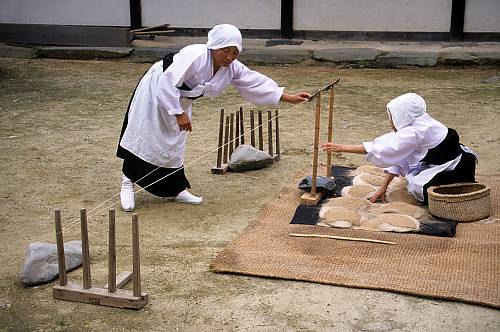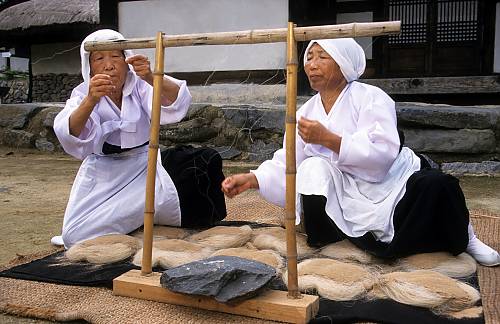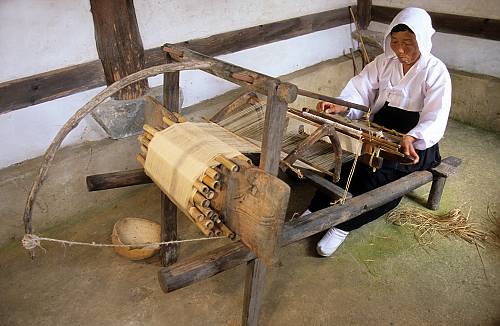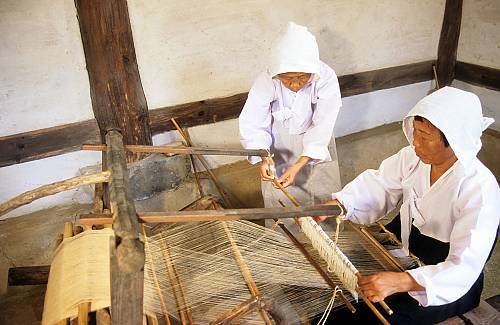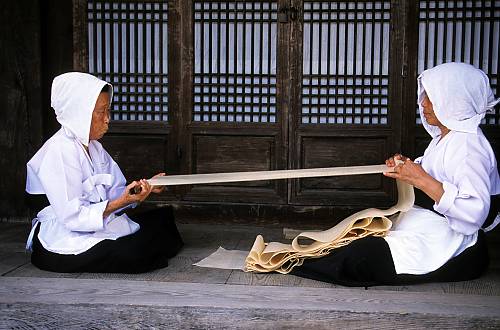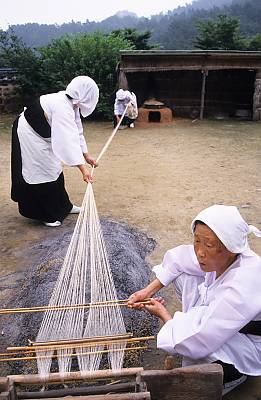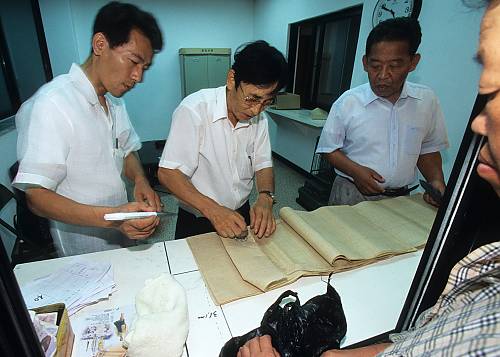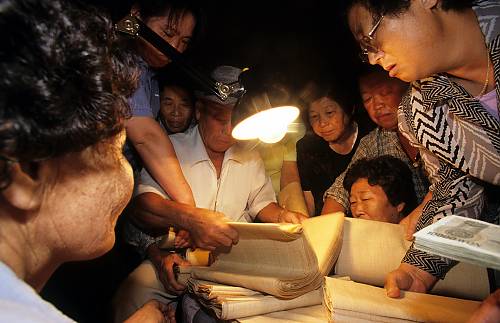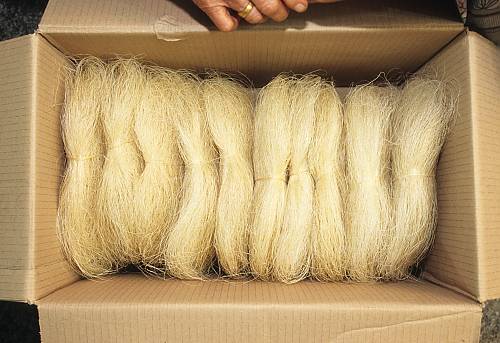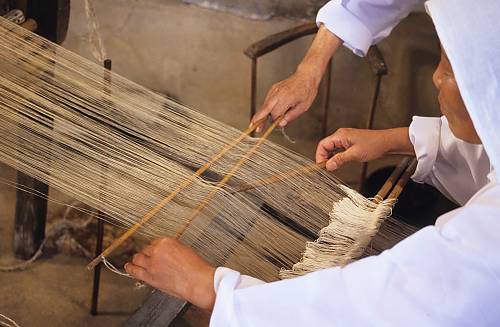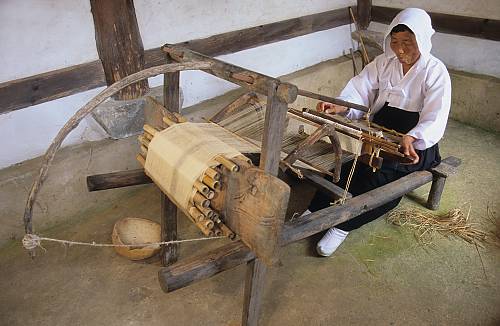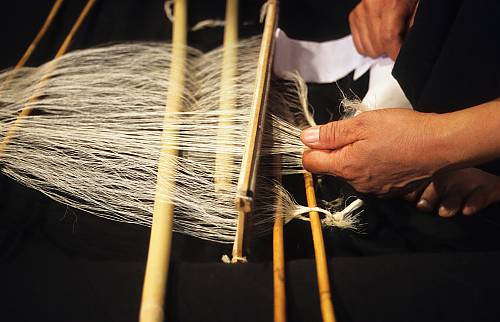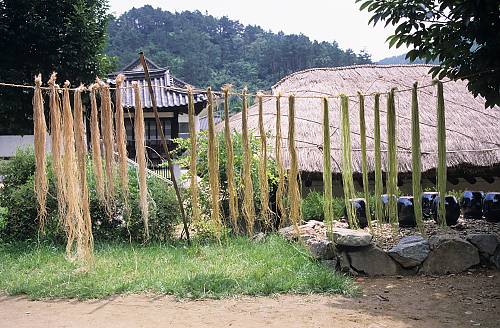Weaving of Mosi (fine ramie) in the Hansan region
Inscribed in 2011 (6.COM) on the Representative List of the Intangible Cultural Heritage of Humanity

Weaving of Mosi in Hansan is transmitted by middle-aged women in the township located in South Chungcheong Province, Republic of Korea. The region boasts fertile land and sea winds that allow ramie plants to thrive. Weaving ramie cloth involves a number of processes, including harvesting, boiling and bleaching ramie plants, spinning yarn out of ramie fibre, and weaving it on a traditional loom. Ramie cloth is comfortable in hot summer weather and is used to produce a variety of clothing from dress suits and military uniforms to mourning garments. The whiteness of the bleached ramie fabric, as well as its refined quality and neatness, makes it suitable for high-end clothing as well as for clothing for ordinary people. Weaving of Mosi traditionally takes place in the form of women-led family operations in which mothers transmit techniques and experience to their daughters or daughters-in-law. The tradition also binds the community together with neighbours gathered and working in a designated section of the town. At present, around 500 people in the province are engaged in the diverse activities of weaving fine ramie.
